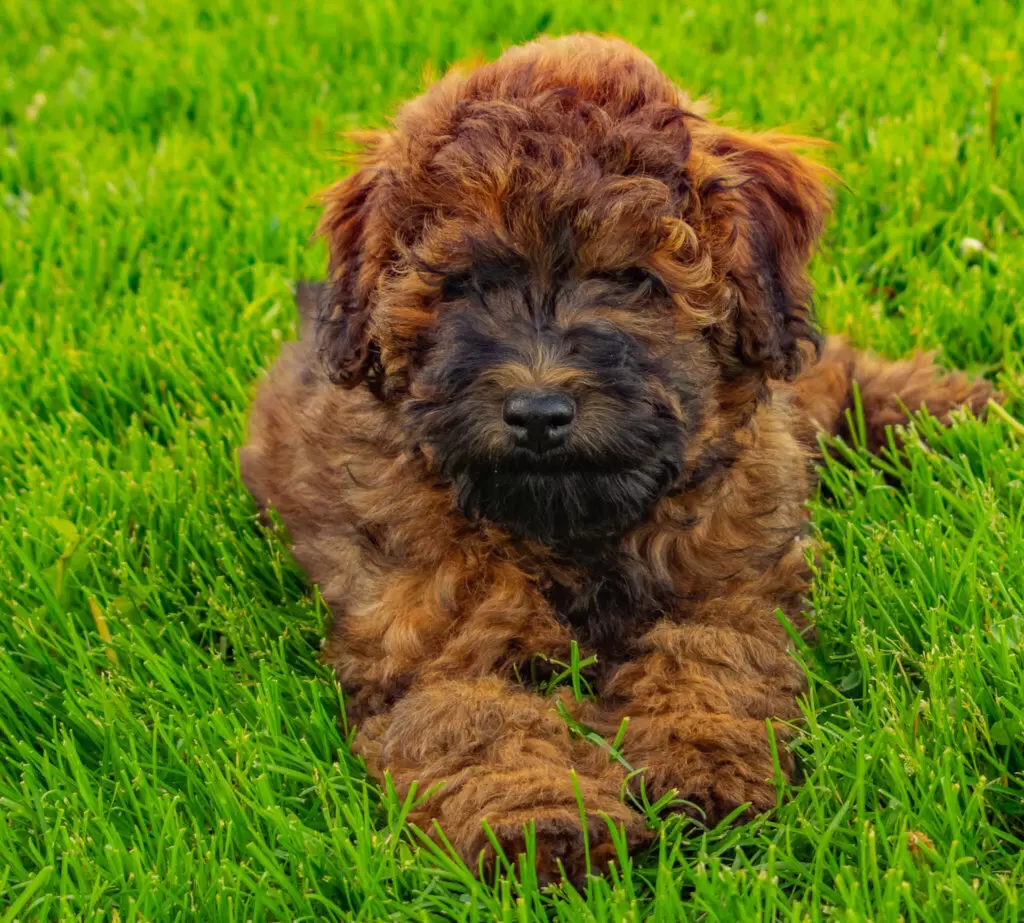Adopting a Whoodle puppy is one of the most joyful (and yes, sometimes challenging) milestones for a pet lover. These fluffy, curly, and undeniably adorable bundles of joy are a cross between a Poodle and a Soft-Coated Wheaten Terrier. With their playful energy and affectionate nature, Whoodles make incredible companions.
But as with any pet, raising a Whoodle comes with its own set of responsibilities. From puppy-proofing your home to training and understanding their unique personalities, this guide is here to walk you through raising your Whoodle—from adoption to adulthood. By the time your little one grows into a well-mannered (and floofy!) adult dog, you’ll cherish every step of the process.
Why Whoodles Make Great Pets
Every dog breed has its charm, and Whoodles are no exception. Whether you’ve already adopted one or are weighing your options, here’s why they’re easy to love:
- Allergy-Friendly Coat: Thanks to their Poodle genes, Whoodles tend to have low-shedding, hypoallergenic coats.
- Intelligence: These pups are quick learners, making them a delight to train (especially if there are treats involved!).
- Gentle Temperament: They’re known for being affectionate and great with families, kids, and even other pets.
- Adventurous: Be it long walks, a game of fetch, or snuggling by your side, Whoodles are ready to match your energy level.
Now that you’re smitten, let’s get to the meat of raising your Whoodle puppy.
Setting Your Whoodle Puppy Up for Success
1. Puppy-Proof Your Home
When a Whoodle puppy from My Whoodle enters your life, chaos and cuteness both arrive in equal measure. To avoid mischief, puppy-proofing is essential.
- Remove anything chewable that isn’t explicitly a toy. Shoes, cushions, and power cords are prime targets during teething!
- Create a designated safe space for your puppy, like a cozy corner with their bed, toys, and water bowl.
Think of it like baby-proofing, except this particular “baby” might think table legs make great chew toys.
2. Early Socialization
Whoodles are naturally friendly, but proper early socialization will ensure their confidence shines through. Expose your pup to a variety of situations, environments, and people.
- Take short trips to dog-friendly parks.
- Plan playdates with calm, vaccinated dogs.
- Gently introduce them to common household sounds like vacuums or alarms (yes, Whoodle parents, this includes your coffee grinder).
The more positive experiences your puppy has during this phase, the more adaptable they’ll become when they grow older.
3. Start Training (with Patience!)
Whoodles are smart, and that’s both their virtue and their challenge. Intelligence means they pick up commands quickly—but it also means they can be stubborn at times.
Focus on rewards-based positive reinforcement training. This includes:**
- Teaching Basic Commands:** Start with “sit,” “stay,” and “come.” Keep sessions short but consistent.
- Housetraining:** Establish a bathroom routine. Celebrate their successes enthusiastically! Accidents are normal, so patience is key.
- Leash Training:** Whoodles love walks, but early leash training prevents pulling behavior from becoming a habit.
Caring for Your Whoodle’s Health and Wellbeing
Exercise Needs
Whoodles aren’t couch potatoes. Though their energy levels vary depending on whether they lean more toward their Terrier or Poodle lineage, regular exercise is non-negotiable.
- A brisk 30-minute walk twice a day keeps them occupied and healthy.
- Play indoor games like tug-of-war when the weather doesn’t cooperate.
Fun fact? Tired Whoodles are happy Whoodles. An under-exercised pup may channel that boundless energy into chewing furniture. Consider yourself warned.
Grooming Essentials
Whoodles boast beautiful, silky coats that require a little more TLC than the average dog.
Regular grooming (at home or through a professional groomer) helps avoid tangles and mats, which can be painful for your pup. Brush their coat several times per week and schedule trims every 6–8 weeks. Don’t neglect their ears, teeth, and nails either! Routine grooming sessions are a great bonding opportunity.
Building a Strong Bond
Every Whoodle wants to feel loved, secure, and part of their “pack” (a.k.a. you and your family!). Beyond feeding and training, here’s how to strengthen your connection:
- Engage Their Mind: Introduce puzzle feeders, new toys, or simple hide-and-seek games to challenge their mental sharpness.
- Spend Quality Time: Whether it’s lounging on the sofa or hiking a scenic trail, being present makes a world of difference.
- Reward the Good Stuff: Celebrate what they’re doing right—from obeying commands to nailing their housetraining milestones.
Soon enough, you’ll find yourself marveling at how much joy this curly-haired companion brings to your life.
Watching Your Whoodle Grow
That floppy-eared puppy you brought home will soon grow into a loyal, goofy, adult dog that steals your heart (and your snacks). Each step in raising your Whoodle is an opportunity to learn, laugh, and celebrate with them.
Being a pet parent has its highs and lows. You’ll have moments of exasperation (like when they’ve shredded an entire roll of toilet paper) and moments of sheer pride (when they finally master “shake” after weeks of trying). But through it all, the love you build makes every moment worthwhile.
Stay consistent, stay patient, and most importantly, enjoy the ride. Your Whoodle isn’t just a pet; they’re family.

Oliver Smith is an experienced blogger at Grammar Globe, Oliver Smith, an expert in English grammar and a master of wit, brings language to life with his playful take on puns. Through his works, he weaves humor into the rules of grammar, making learning fun and engaging for readers of all ages. Discover language with a smile!”







